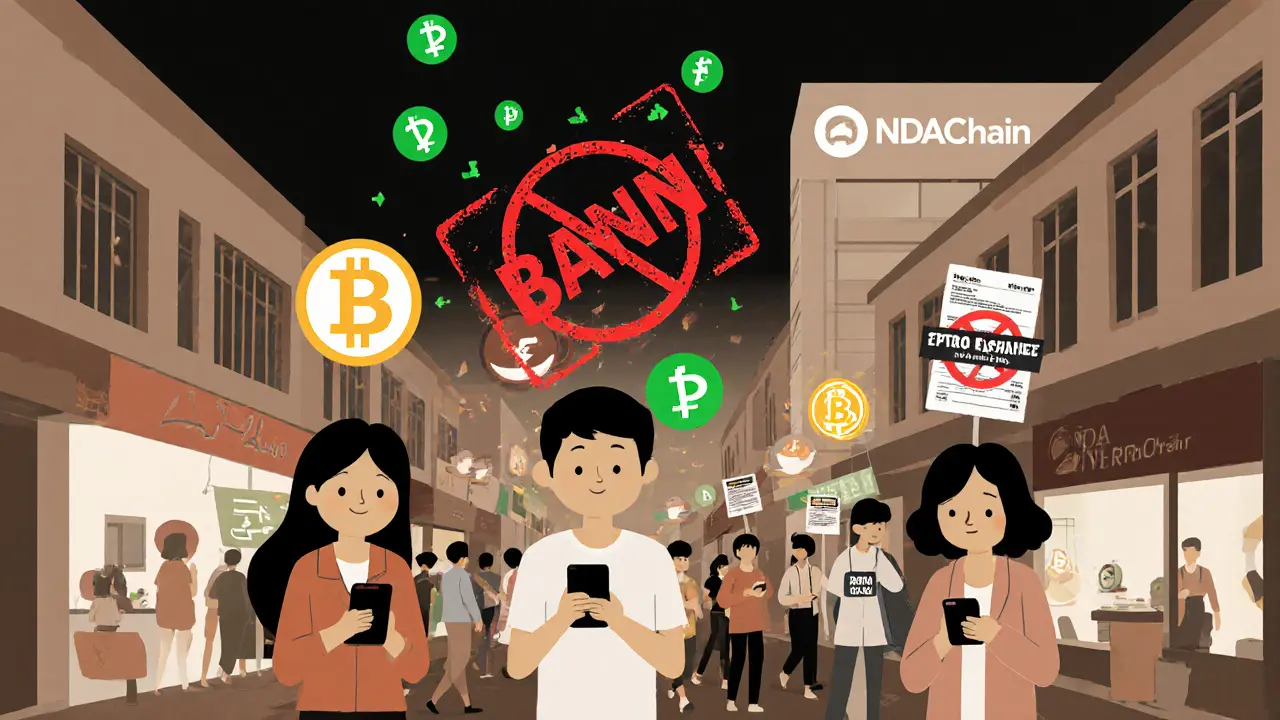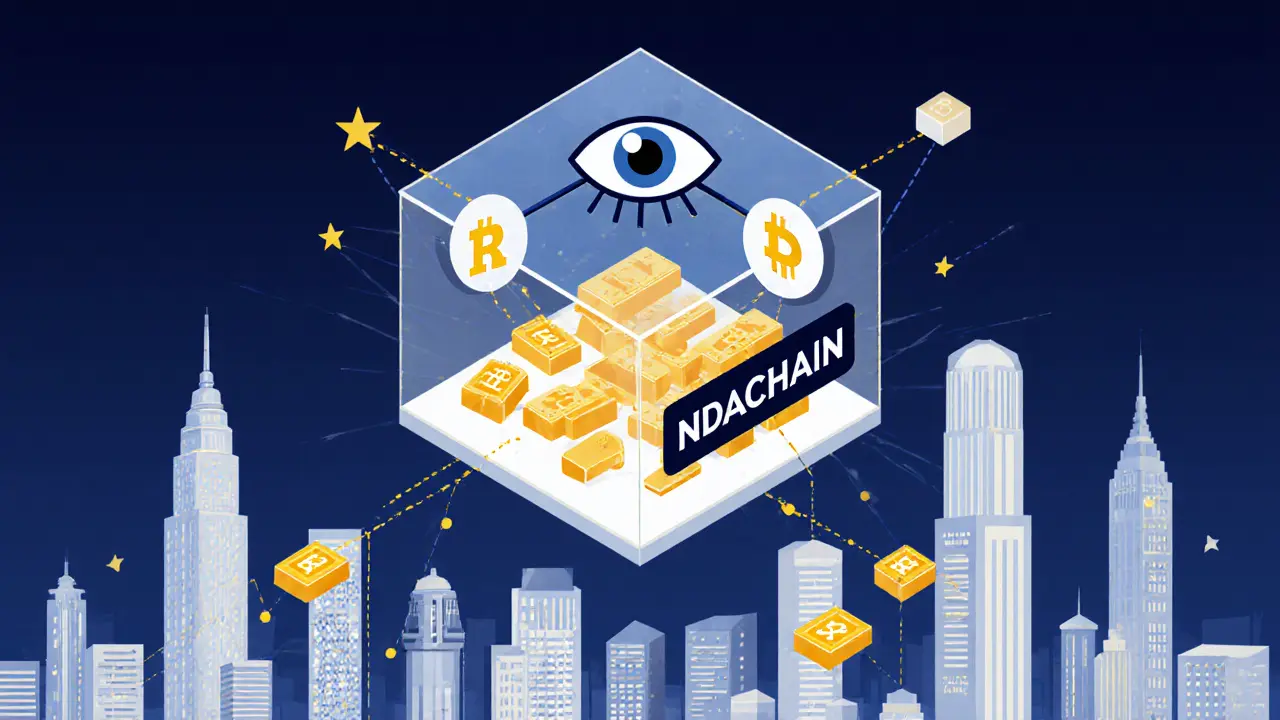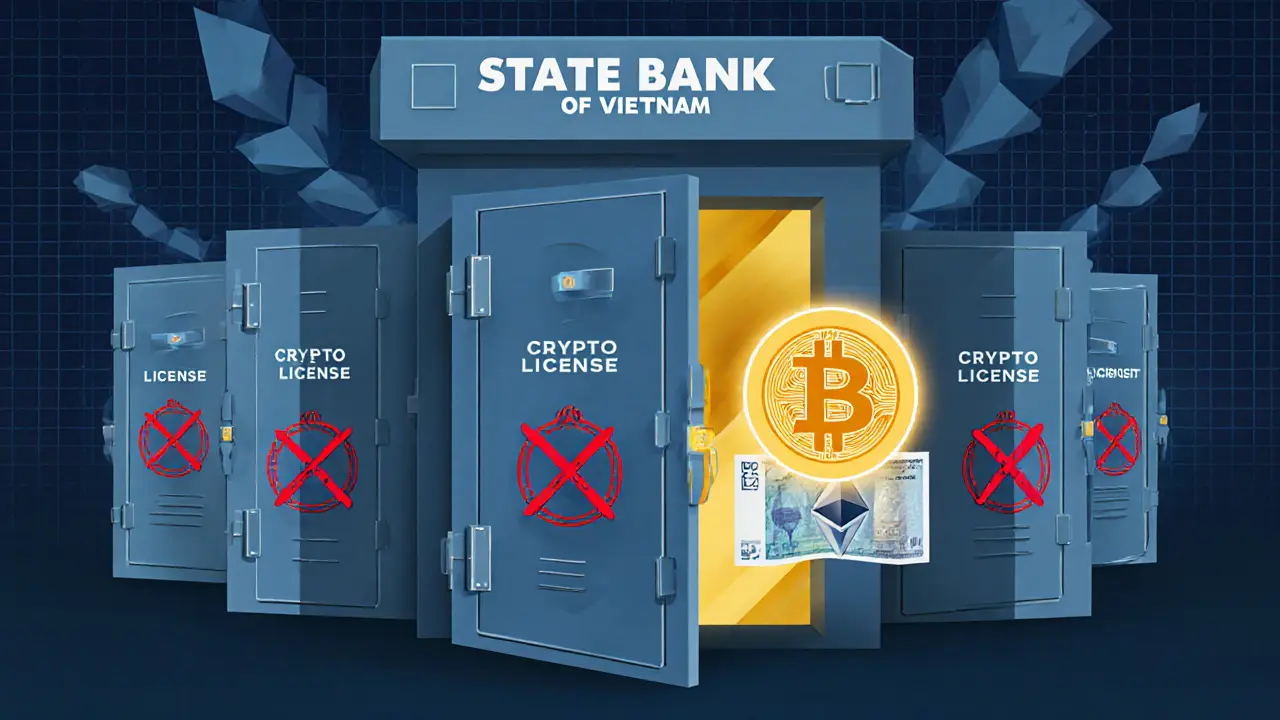Vietnam Crypto Exchange License Eligibility Checker
Vietnam Crypto Exchange License Requirements
To operate a licensed crypto exchange in Vietnam, your company must meet all of these requirements:
- Minimum capital requirement: 10 trillion VND ($379 million)
- At least two shareholders from approved sectors (commercial banks, securities firms, insurance companies, fund managers, tech enterprises)
- Two consecutive years of profitability
- Vietnamese-owned company (no foreign firms allowed)
- No stablecoins or fiat-backed tokens permitted
For years, Vietnam’s central bank treated cryptocurrency like a dangerous rumor-something to be ignored or banned. But in 2025, everything changed. The State Bank of Vietnam didn’t just soften its stance-it rewrote the rules. By June, Bitcoin and Ethereum were officially recognized as legal virtual assets. By September, a brand-new licensing system was unveiled, setting the stage for a tightly controlled crypto market unlike anything else in Southeast Asia.
From Ban to Bureaucracy
Before 2025, using cryptocurrency for payments in Vietnam was illegal. Banks couldn’t process crypto transactions. Exchanges operated in the shadows. The State Bank of Vietnam had one clear message: don’t touch it. But retail adoption didn’t stop. Vietnam ranked fourth globally in the 2025 Chainalysis Crypto Adoption Index, with over 20% of tech-savvy adults holding digital assets. People were trading anyway-mostly through Binance P2P, using Vietnamese dong to buy Bitcoin in private deals. The central bank realized it couldn’t keep up with the tide. So instead of fighting it, they decided to control it. The result? Resolution No. 05/2025/NQ-CP, issued on September 9, 2025. This wasn’t just a guideline. It was a full legal framework. Cryptocurrencies were no longer illegal. But they weren’t free either.What’s Allowed Now?
Under the new rules, you can legally own, trade, and inherit Bitcoin, Ethereum, and other approved virtual assets. You can even use them as collateral-something unthinkable just a year ago. But here’s the catch: you can’t use them to pay for coffee, rent, or groceries. The State Bank still bans crypto as a payment method. That hasn’t changed. The goal isn’t to replace the Vietnamese dong. It’s to create a regulated investment channel. Only Vietnamese companies can issue virtual assets. And those assets must be backed by real things-like gold, real estate, or commodities-not fiat currency or stocks. This is a key difference from places like Singapore, where stablecoins pegged to the US dollar are widely accepted. In Vietnam, a dollar-backed token? Not allowed.The Five-Licence Lockdown
Here’s where things get intense. Only five crypto exchanges in the entire country will ever be licensed. And getting one? It’s harder than opening a bank. To even apply, a company needs at least 10 trillion Vietnamese dong in capital-that’s about $379 million. The money can’t come from just anyone. At least two shareholders must be from approved sectors: commercial banks, securities firms, insurance companies, fund managers, or tech enterprises. And they must have been profitable for two straight years. No startups. No foreign firms. No exceptions. Starting in 2026, licensed exchanges can only offer trading pairs in Vietnamese dong. No BTC/USDT. No ETH/EUR. Only BTC/VND. This forces all trading activity to flow through the local financial system. It’s a way for the State Bank to track every transaction, collect taxes, and prevent capital flight. Foreign investors? They can’t trade directly. They have to go through Ministry of Finance-approved Crypto Asset Service Providers (CASPs). These are middlemen with extra oversight, acting as gatekeepers to keep international capital under control.
NDAChain: Vietnam’s Secret Blockchain
While the public focuses on exchanges, the central bank quietly launched something even more significant: NDAChain. This isn’t a public blockchain like Ethereum. It’s a permissioned, government-controlled network. Think of it as Vietnam’s internal ledger for digital assets. NDAChain lets institutions tokenize bonds, carbon credits, and even land titles. All transactions are visible to regulators. No anonymity. No hidden transfers. It’s a way for the government to experiment with blockchain technology without losing control. It’s also a signal: if you want to use crypto in Vietnam, you play by our rules.Why No One Has Applied Yet
As of October 2025, zero companies have submitted a license application. Not one. The capital requirement alone scares off most players. Even Vietnam’s biggest banks are hesitant. The compliance burden is enormous. Every trade must be logged. Every customer verified. Every asset audited. And if you mess up? Fines are steep. The State Bank has made it clear: violations won’t be tolerated. Some insiders say the rules are too strict. They argue that Vietnam’s approach will push innovation overseas. Why build a crypto exchange in Vietnam when Singapore or the Philippines offer lighter regulation and global access? But the central bank isn’t worried. They’re not trying to become the next crypto hub. They’re trying to build a safe, taxable, controllable system. They want to capture the economic benefits-tax revenue, investment inflows, job growth-without risking financial stability.What’s Next?
The whole system is a five-year pilot. That means nothing is final. If trading volumes explode and fraud stays low, the rules could loosen. If money laundering spikes or capital leaves the country, the government could shut it down overnight. One thing is clear: the State Bank of Vietnam isn’t chasing hype. They’re chasing control. They want to see how crypto behaves in a real economy before fully embracing it. And they’re willing to wait. For now, the market is stuck in limbo. Retail traders keep using P2P platforms. Institutional investors wait on the sidelines. Exchanges hold their breath. And the central bank watches-patiently, quietly, and with absolute authority.
How This Compares to Neighbors
Compare Vietnam to the Philippines. There, crypto is treated like a financial tool. You can buy Bitcoin with your bank app. You can use it for remittances. You can even get a crypto-backed loan from a licensed lender. The government encourages it. Singapore? They’ve built a global crypto hub. Stablecoins are legal. Institutions trade freely. The Monetary Authority of Singapore has clear, predictable rules. Vietnam? It’s the opposite. No stablecoins. No foreign exchanges. No easy access. But here’s the twist: despite all the restrictions, Vietnam still leads Southeast Asia in crypto adoption. People don’t need permission to believe in Bitcoin. They just need a phone and a Wi-Fi connection.What This Means for You
If you’re a Vietnamese citizen: you can now legally hold crypto. You can trade it on approved platforms (once they launch). You can inherit it. You can even use it as collateral for loans. But you still can’t pay with it. And you’ll need to use a licensed exchange-no Binance, no KuCoin, no offshore platforms. If you’re a foreign investor: you can’t trade directly. You need to go through a CASP. That adds cost, delay, and paperwork. Most won’t bother. If you’re a business: don’t expect to set up a crypto exchange anytime soon. The capital and compliance requirements are designed to keep out newcomers. Only giants with deep pockets and local ties stand a chance.The Bigger Picture
The State Bank of Vietnam isn’t anti-crypto. It’s anti-risk. It’s anti-chaos. It’s pro-control. They see digital assets not as a threat to the dollar, but as a tool to strengthen the Vietnamese economy. They want to attract investment, boost tax revenue, and modernize financial infrastructure-all while keeping the system stable. This isn’t the end of crypto in Vietnam. It’s the beginning of a new chapter-one where the government writes the rules, and everyone else follows.Is cryptocurrency legal in Vietnam in 2025?
Yes, but with heavy restrictions. Bitcoin and Ethereum are legal as virtual assets you can own, trade, and inherit. But you cannot use them to pay for goods or services. Only five licensed exchanges will be allowed to operate, and all trading must be in Vietnamese dong.
Can I buy Bitcoin on Binance in Vietnam?
You can still buy Bitcoin through Binance’s peer-to-peer (P2P) platform using Vietnamese dong. But Binance’s official exchange platform is not licensed in Vietnam. Using unlicensed exchanges carries legal risk, especially as the government cracks down on non-compliant platforms after 2026.
Why hasn’t any company applied for a crypto license yet?
The capital requirement of 10 trillion VND ($379 million) is extremely high for most firms. Combined with strict ownership rules (only Vietnamese entities with two years of profits qualify) and heavy compliance demands, many potential applicants are waiting to see how the system works before investing millions.
Can foreigners invest in Vietnamese crypto assets?
Yes, but only through Ministry of Finance-approved Crypto Asset Service Providers (CASPs). Direct trading on Vietnamese exchanges is not allowed for foreign individuals or companies. This adds layers of oversight and limits accessibility.
Will Vietnam allow stablecoins like USDT in the future?
As of 2025, no. The State Bank of Vietnam explicitly bans fiat-backed stablecoins. All virtual assets must be backed by real physical assets like gold or property, not US dollars or other currencies. There are no signs this policy will change in the near term.
Is NDAChain open to the public?
No. NDAChain is a government-controlled, permissioned blockchain. Only approved institutions-like banks, insurance firms, and government agencies-can participate. It’s designed for secure, traceable tokenization of assets like bonds and carbon credits, not public crypto trading.
How does Vietnam’s crypto policy compare to Thailand or Indonesia?
Vietnam is stricter. Thailand allows licensed exchanges to offer USD-backed stablecoins and has lower capital requirements. Indonesia permits crypto as a payment asset in some cases. Vietnam bans stablecoins, restricts foreign access, and demands far higher capital-making it the most controlled market in the region.
What happens if I trade crypto on an unlicensed platform?
Right now, individuals aren’t being prosecuted for personal trading. But the State Bank has warned that operating or promoting unlicensed exchanges is illegal. Future enforcement may target platform operators, not users-but penalties for businesses are severe, including fines and criminal charges.

Eliane Karp Toledo
November 1, 2025 AT 02:06They're not banning crypto, they're just making it a state monopoly. Next thing you know, NDAChain will be the only place you can 'own' Bitcoin - and the government will hold the private keys. This isn't regulation, it's digital feudalism. They'll tax your gains, track your wallet, and then tell you you're lucky they let you hold it at all. Wake up, people.
Phyllis Nordquist
November 2, 2025 AT 17:56This is a remarkably thoughtful and pragmatic approach to cryptocurrency adoption. By restricting payment use while permitting ownership and trading under strict oversight, Vietnam has created a framework that mitigates systemic risk while still accommodating market demand. The capital requirements, while high, ensure only financially stable entities enter the market, reducing the likelihood of fraud or collapse. This model deserves serious study by other emerging economies.
Josh Serum
November 4, 2025 AT 10:22Oh please, you think this is smart? You're telling me a country with 20% crypto adoption can't handle decentralized finance but can handle 10 trillion VND in capital requirements? That's like building a fortress around a sandbox. The real innovation is happening on P2P - and the government knows it. They're just scared because they can't control the people. This isn't innovation, it's a power play dressed up as policy.
DeeDee Kallam
November 4, 2025 AT 18:25so like… if i buy btc on binance p2p im still cool? no one gonna jail me right? lol
Helen Hardman
November 4, 2025 AT 18:31Okay, I just read this whole thing and I’m so hyped! Imagine if this actually works - Vietnam becomes the Singapore of regulated crypto, but with its own flavor. No stablecoins? Fine. Only VND pairs? Even better. It means money stays in-country, taxes get collected, and real people benefit. The fact that no one’s applied yet? That’s just the calm before the storm. Once one big bank finally steps up, the rest will follow like dominoes. This isn’t a dead end - it’s the foundation of something beautiful. The central bank isn’t behind the curve, they’re building the curve.
Elizabeth Melendez
November 5, 2025 AT 12:12can we just take a second to appreciate how wild it is that vietnam’s retail adoption is #4 globally despite having zero legal exchanges? people are literally trading crypto like it’s cash on whatsapp and p2p apps and the government saw that and said ‘ok fine, let’s make it official but on our terms’ - that’s not fear, that’s intelligence. yeah the rules are strict, but they’re not trying to stop crypto, they’re trying to make sure it doesn’t break their economy. i think this is actually genius. the fact that they’re using blockchain for land titles and carbon credits? that’s next-level. they’re not playing the game, they’re rewriting it.
Phil Higgins
November 6, 2025 AT 12:39Control is not the opposite of freedom - it is its necessary condition. Without structure, markets devolve into chaos. Without oversight, innovation becomes exploitation. The State Bank of Vietnam has chosen the harder path: to integrate rather than suppress. This is not a restriction on liberty, but a refinement of it. The people still trade. The market still breathes. But now, it breathes within a framework that protects the vulnerable, ensures accountability, and preserves the integrity of the national currency. This is not tyranny. It is wisdom.
Genevieve Rachal
November 7, 2025 AT 07:39Let’s be real - this is a disaster waiting to happen. 10 trillion VND? That’s not a barrier to entry, that’s a joke. Only state-connected oligarchs will ever get licenses. This isn’t regulation, it’s crony capitalism with blockchain branding. And NDAChain? A surveillance tool disguised as innovation. You think people are gonna stop using Binance P2P? Nah. They’ll just get better at hiding. This policy won’t stop crypto - it’ll just make it more corrupt.
Nadiya Edwards
November 7, 2025 AT 08:17They think they’re protecting the dong? What a joke. The real threat isn’t Bitcoin - it’s the fact that Vietnamese youth are smarter than their government. They’re not waiting for permission. They’re not asking for licenses. They’re buying crypto with their lunch money. This policy is an insult to their intelligence. And now the state wants to tax their dreams? Let them keep their coins. Let them trade. Let them thrive. Or one day, they’ll leave - and take their talent with them.
Ron Cassel
November 8, 2025 AT 17:32They banned stablecoins because they’re scared of the dollar. Classic. They think if they stop people from using USDT, they’re protecting their currency. But here’s the truth - the Vietnamese dong is weak because their economy is weak, not because of crypto. This policy isn’t about control. It’s about fear. And fear doesn’t build nations. People do. Let them use USDT. Let them trade freely. Or watch your economy get left behind while Singapore eats your lunch.
Malinda Black
November 9, 2025 AT 17:26It’s okay to be cautious. It’s okay to move slowly. Look at how many countries rushed into crypto and got burned. Vietnam isn’t being slow - they’re being smart. They’re watching, learning, and building something that lasts. The fact that no one’s applied yet? That’s not a failure. It’s a sign that people are waiting for the right moment. And when they do? It’ll be strong. I believe in this.
ISAH Isah
November 9, 2025 AT 19:17Interesting model but deeply flawed. Why force all trading through VND when global liquidity is in USDT and BTC? You create artificial friction. You isolate your market. You punish your own people who want global access. This is not innovation. It is isolation dressed as control. The world moves fast. Vietnam is building a museum.
Chris Strife
November 10, 2025 AT 00:3010 trillion VND. Five licenses. No foreign players. No stablecoins. This isn’t policy. It’s a joke. The government is scared of its own people. And they’re so busy building walls they forgot to build a future. This is how economies die. Slowly. Quietly. With paperwork.
Mehak Sharma
November 10, 2025 AT 04:18What strikes me most is how beautifully Vietnam has turned constraint into creativity. No stablecoins? Fine - they’re building tokenized gold and land titles on NDAChain. That’s not just regulation, that’s reimagining property rights. No foreign exchanges? Okay - they’re forcing capital to circulate domestically. This isn’t anti-globalization - it’s pro-sovereignty. The world thinks crypto means chaos, but Vietnam shows it can mean order. The people are already ahead - now the system just needs to catch up. This isn’t a restriction. It’s a revolution in slow motion.
bob marley
November 10, 2025 AT 14:30Oh wow. So the government is the only one allowed to run crypto now? How original. Next they’ll be printing Bitcoin and calling it ‘digital dong’. Brilliant. Truly. The most innovative thing here is the sheer audacity of the delusion.
Sammy Krigs
November 11, 2025 AT 01:19wait so i can own btc but cant use it to buy a coffee? so its like digital gold but the government says you can only stare at it? this is the dumbest thing ive ever heard